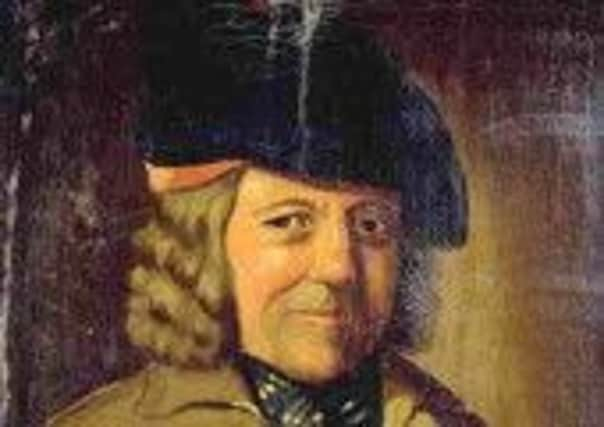Jim Gilchrist: Tracing historic misdeeds of pipers


I don’t mean this vindictively, but find myself prompted along this line of thought by details of the Lowland & Border Pipers’ Society’s forthcoming collogue, or annual gathering, which foregathers in the Town House, Haddington, on 1 November.
The society, which has played a seminal role in the current vigorous renaissance of Scotland’s bellows-blown pipes, tends to meet in places of worthy piping pedigree and Haddington is no exception. According to the society’s Pete Stewart, Haddington and the surrounding county probably has more recorded pipers from the 16th and 17th centuries than any other, while the burgh itself is unique in boasting the only image depicting a town piper actually playing through the street.
Advertisement
Hide AdIt is noticeable, however, that, as often as not, these bygone pipers are recorded for their misdeeds rather than their musicality. Stewart, who has carried out extensive research into Lowland and Border piping, points to numerous piping miscreants, including one Robert Stewart (no relation), prosecuted in 1598 by the presbytery of Haddington, not only for “incestuous adultery” but the possibly even worse crime of profaning the Sabbath by playing the pipes.
Stewart’s was just one name on what his present-day namesake describes as a “black list” of five pipers compiled by the presbytery for possible future prosecution.
However, for even more spectacular levels of depravity/enjoyment (delete as appropriate), step forward one Richard Scougall (also known as Skowgall or Skowgill), son of another of those black-listed pipers, Patrick Scougall. Both Richard and his father were official town pipers of Haddington around the turn of the 16th and 17th centuries.
In September 1610, Stewart tells me, a local dignitary and notary public, John Wilkie, was confined, for reasons unknown, to Haddington’s Tolbooth prison. While confined, he seems to enjoyed sufficient leeway to hold a soirée in his cell and invite a few pals, including Richard Scougall.
Drink and bagpipes were ever a fatal combination and things apparently got out of hand, the burgh records describing (in syntax and spelling not to be found in The Scotsman style book) “drinkand and playand an gestand in Richert Skowgall their common pyper and swascher with ye swasch and his pype as also Johne Grahame pyper playand all that nycht in the tolbooth and upon the wall heid thairoff with their pypes and the swasch schouting crying and makein proclamations upon the wall heid of the tollbooth and using sundrie insolences in contempt of the magistrates ...”
There’s more of the same, but clearly it was a good-going rammy. Earlier documents, from 1608, record Richard Scowgill being made “a burger for spices and wine” (which may explain the evident plenitude of alcohol at the Tolbooth two years later) but also being solemnly sworn in as burgh piper and drummer and being charged with “beating his drum through all the streets of the town, at all proclamations, muster days, riding of the marches of the moor, King’s night, August 5th, November 5th and all other festivals ...”
Advertisement
Hide AdIntriguingly, however, in wet weather, instead of the drum he was to play the “great pipe” at the same places and times; were bagpipes considered more weather-resistant than drums? (I’ve seen massed pipers and drummers alike, during the World Pipe Band Championships on Glasgow Green, taking everything our perfidious weather can fling them without missing a beat or fluffing a note.)
To return to that picture, sketched by Robert Mabon during the 18th century, it depicts town piper James Livingstone and swascher Andrew Simpson, parading through the town, followed enthusiastically by a local simpleton known as Harry Barry. Stewart, a piper himself, hopes to recreate Simpson and Livingston’s beat the day of the collogue, suitably attired in period threads. He will give a talk on the burgh records at the collogue, which also features a presentation on Border music from ballad singer and musician Pete Shepheard and Jedburgh fiddler Jimmy Nagle.
Advertisement
Hide AdThe programme includes traditional singer Barbara Dymock and Davey Robertson (who sings while accompanying himself on bellows pipes), while Callum Armstrong will demonstrate his innovative playing on the small pipes developed by Peebles maker Julian Goodacre. Riotous assembly, on the wall heids or anywhere else, appears not to be on the cards, but you never know.
• The Lowland & Border Pipers’ Society’s collogue is on 1 November, www.lbps.net